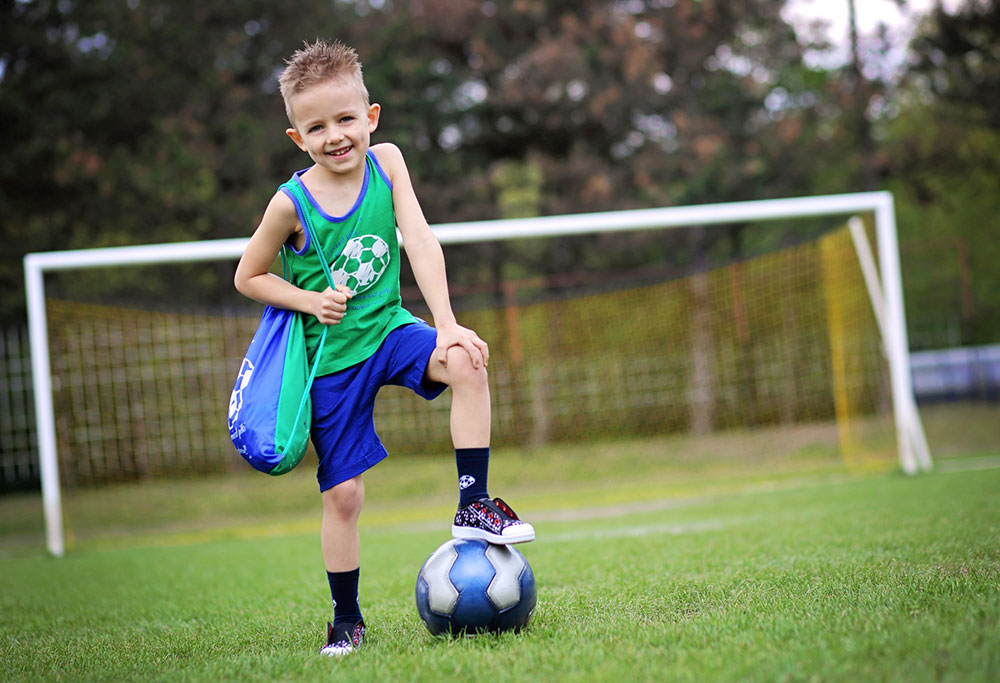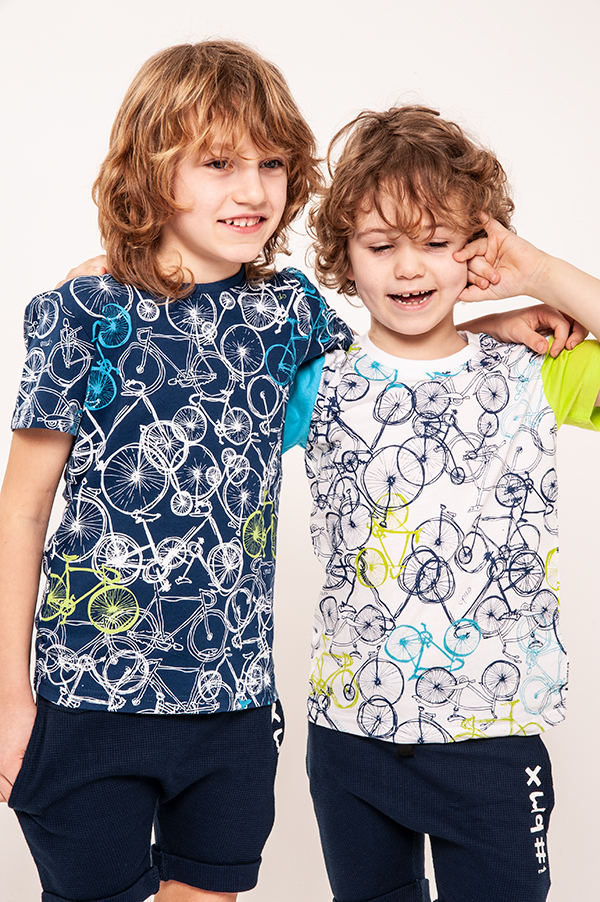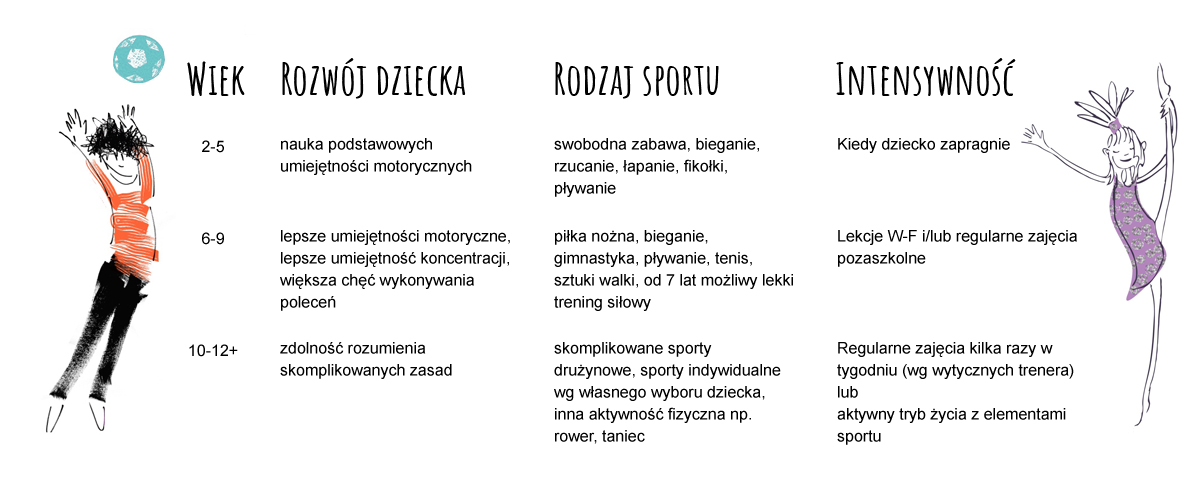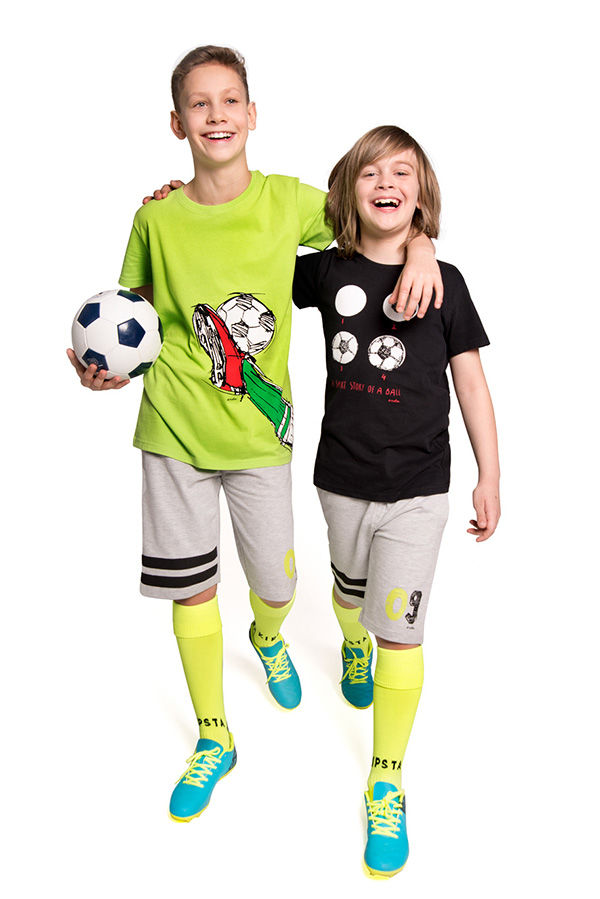
No one needs convincing how important physical activity is in a child's life and how much of an impact it has on our quality of life . Thanks to sport, we are physically and mentally healthy and learn many useful social and life skills.
As parents, we want our children to be exposed to sports from a young age. How can we help our children develop a love for exercise and training, and how can a love of sports become a healthy habit that will last a lifetime ?
In this article you will learn:
- what are the benefits of practicing sports,
- how to choose the best sport for your child,
- how to choose a sport that suits the child's age,
- how to encourage your child to do sports.
What is the impact of sport on a child's development?
Healthy lifestyle
The first benefit that comes to mind when we talk about sports is, of course, health. We know perfectly well that exercise, along with a healthy diet, helps maintain excellent physical fitness, which translates into a reduced risk of many diseases and obesity . People who exercise have more energy, which impacts their daily lives and their academic and professional performance, and they can also enjoy youth and fitness longer. Good habits formed in childhood are therefore essential for a happy and healthy life.
Social skills
During training or competition, a child's social skills will often be put to the test . They will be faced with conflict situations in which they will have to learn to defend their rights or accept defeat. A young athlete will learn to follow rules, be responsible, and respect their teammates, opponents, and coaches.
Development of positive personality traits
By training with the aim of achieving better results , a young person will develop a number of positive character traits such as determination, focus on the goal, patience, perseverance and self-confidence .
Playing by the rules of Fair Play
Learning the principles of fair play will help shape your child's moral fiber . Your little one will learn honesty and fair treatment of peers, regardless of personal gain. It will simply be a fantastic time spent having fun.

Learning to cooperate
Being part of a team will help your child see that to achieve results, they must collaborate with the rest of the team and follow the coach's lead . Working in a group allows them to discover their strengths. Children who don't necessarily have leadership skills will discover that every role on the team is crucial to achieving collective success, which will help them gain confidence and build self-esteem.
Better academic results
Many studies have shown that children who participate in sports also perform better academically . Children who participate in sports know that to achieve results, they must train regularly. This same perseverance and determination naturally translates to their schoolwork.
Good fun
Let's not forget that sports, especially at a young age, should be, above all, fun. Physical activity for children, especially outdoors, allows them to make new friends, reduce stress, and simply have a fantastic time having fun.

Child's physical activity - How to choose the best sport?
When choosing a sport for your child, consider their preferences first and foremost . Even if your princess looks fabulous in a tulle ballerina outfit, her energetic personality and sociability might be better suited to the soccer field.
In a team or solo
Observe your child in the yard. Do they prefer to play with other children more often, or do they prefer to test their strength and endurance on the monkey bars alone? If your child is sociable and able to cooperate with peers, they'll find it easier to thrive in team sports. For introverted children, training in a large group or in high-contact sports may prove too much pressure and discourage them from participating in sports altogether. Shy children may feel more comfortable in smaller groups, facing a single opponent, such as in tennis, or training alone, such as in gymnastics or running.
Age-appropriate sport
Toddlers up to 6 years old
Until the age of six, focus on sports that develop general skills such as coordination, balance, agility, and speed. For a child to develop a lifelong love of sports, they should associate it with fun. Don't expect your child to have precise movements or understand complex rules; these skills are still developing. During this period, your patience and understanding can be crucial to whether your child develops a lasting love for sports.
If a young child already shows interest in a particular sport, there's certainly nothing stopping them from trying it. However, don't be surprised if a little ballerina who usually wears tulle becomes discouraged after just one class. Children this age may be characterized by short-lived enthusiasm because they don't yet fully understand their strengths and preferences.
Children aged 6-10
A child at this age already has sufficient motor skills to successfully start playing sports, and their intellectual abilities will easily allow them to understand the rules of a given sport.
More sensitive children, however, may experience emotional discomfort. Participating in organized training sessions, where they are exposed to competition and comparison with their peers, may prove too much for them. If your child doesn't cope well with this atmosphere, postpone sports activities for a few months or even a few years. By the age of 8-10, your child will have the appropriate social skills to cope with pressure. It's better to wait than to expose them to frustration and disappointment, which could discourage them from sports forever.
At school age, a child's preferences will be greatly influenced by the interests of their peers. At this age, friendship and a sense of belonging are crucial. A child may develop an interest in sports such as soccer. Cheering on a favorite team or athlete will also influence their choice of sport. Give your child the opportunity to try a variety of sports so they can find the one that best suits their temperament.
Physical activity of a child aged 10-12
An older child may already have specific preferences and know exactly what sport they want to participate in regularly. Trust their intuition and interests. For some children, this will also be a time to say goodbye to sports. There's nothing wrong with that. Your child may need more time to develop other passions, study, or simply socialize with peers. In this case, you need to convince your child that even if they don't want to participate regularly, they still need it in their life. Help them choose an activity that's less demanding and enjoyable.
Read also: What to consider when choosing extracurricular activities? - a parent's guide

How to encourage your child to take up sports
Lead by example
Regular physical activity for our children is crucial . The best incentive we can give our children to participate in sports is our own example. Even a toddler will become a passionate exercise enthusiast if they see their mom or dad doing it regularly. Try to make sports a regular part of your family's life. A few minutes of morning exercise, active vacations, or playing soccer together will be the best motivation for your child. If you don't set a good example for your little one, it will be hard for them to believe that sports are fun.
Encourage, don't discourage
Not every physical activity suggested to your child will be met with enthusiasm. It's very important, especially with young children, not to force sports activities and discourage them from participating in sports altogether. Observe which activities come more easily to your child and what they derive the most joy from.
Participation is more important than winning
Pay more attention to the positive aspects of sport, such as fun and health . Instead of asking, "How many goals did you score?" ask, "Did you have fun?" Don't criticize your child's defeats, but focus on their efforts. If you praise a losing team for a good performance, your child will see that it's not the result that matters, but the effort put into the game. Don't be afraid that this approach will diminish your child's ambition. If they start taking sport seriously, they will strive for better results on their own. However, if sport remains fun and a hobby for them, the positive experience will bear fruit, and sport will undoubtedly become a permanent part of their life. Such home "tutoring" will certainly benefit us as well.

Allow testing of multiple activities
Finding a favorite sport can be a difficult and lengthy process . Allow your child to experiment and make mistakes. Attend open days at sports clubs, where you can try out a variety of activities. Many clubs also offer free trial classes.
Take your training seriously
If you and your child have decided to participate in sports activities, be aware that they will also require considerable effort and organizational skills. Transporting your child won't be as challenging if you find activities at local sports clubs. Try to ensure your child is on time for training and is prepared for it . Don't miss training for trivial reasons. It can be very difficult for your child to catch up on missed activities and develop perseverance.
Support and participate in a sports “career”
For young children, a parent is their entire world. Actively participate in activities and fun. Cheer on your team at practices and competitions. Attend your favorite team's matches together. As your child's first coach, you influence their perception of sports, and conquering successive "sporting" milestones together will strengthen your bond and create beautiful memories that will last a lifetime.
Child Physical Activity - Design Positive Experiences
Frequent failures in sports can negatively impact self-esteem. Arrange situations where your child has the opportunity to win and build their self-confidence . Of course, you can let little ones win. For older children, you can offer a simplified version of the game or practice with them the elements they're struggling with. Such at-home "tutoring" will certainly benefit us, too.

When your child doesn't want to play sports at all
Your child may have a personality type that doesn't mesh well with regular training, or they may have completely different interests . In this case, focus on family activities like longer walks or bike rides. If your child is particularly reluctant to exercise, organize sports into a fun activity. A good idea would be a visit to the swimming pool, where you can spend a lot of time sliding down the slide, or playing at a trampoline park, where your child will never realize they're playing sports.






Podziel się:
How to dress a girl in winter - Dressing a child in layers
Damn Balance! Endo at the National Museum!